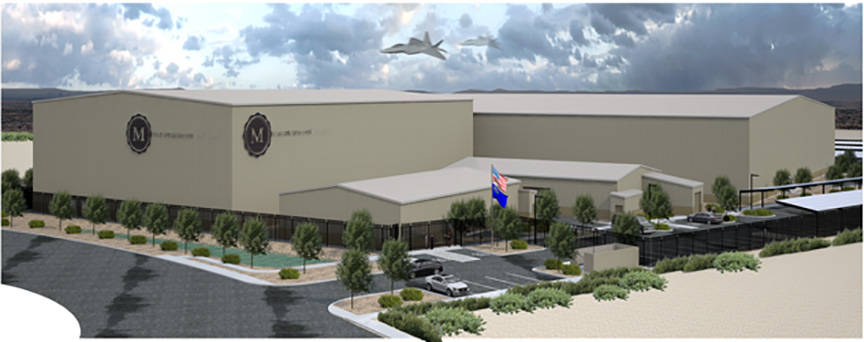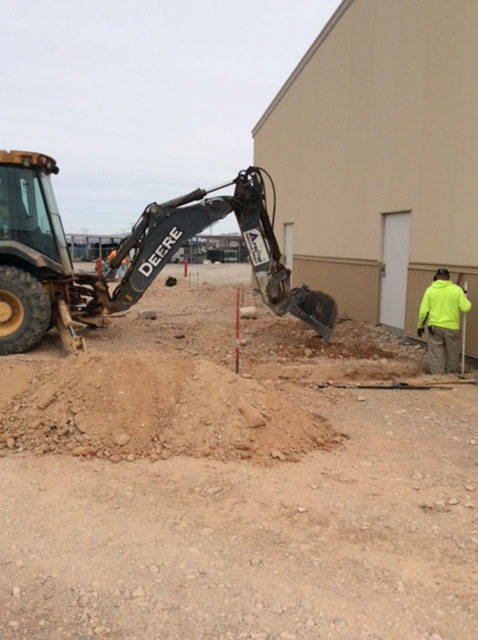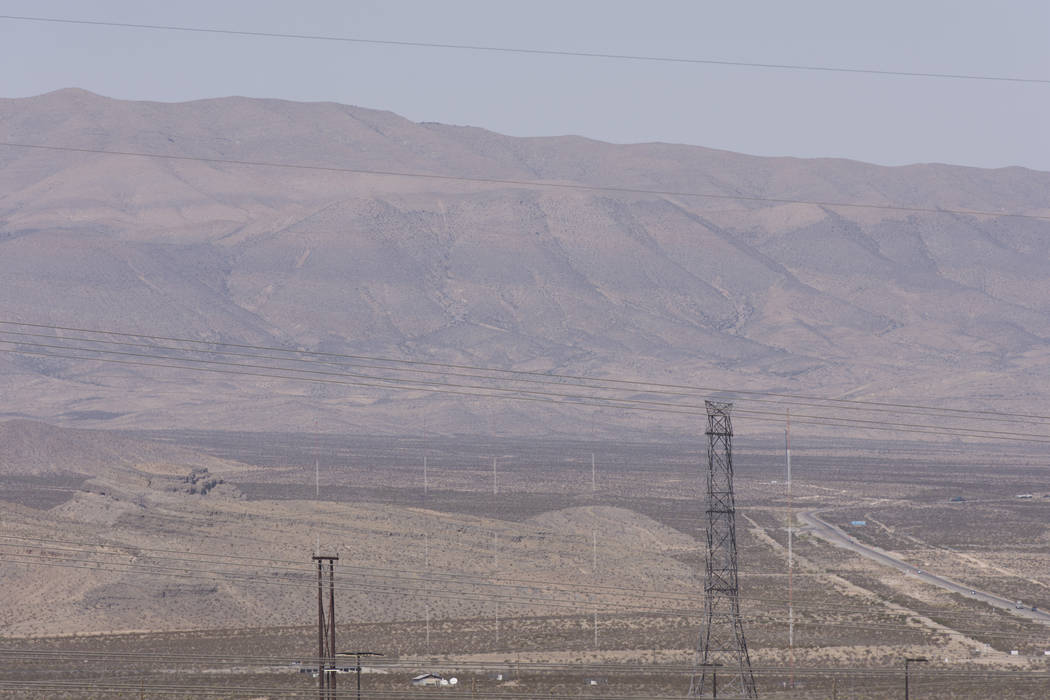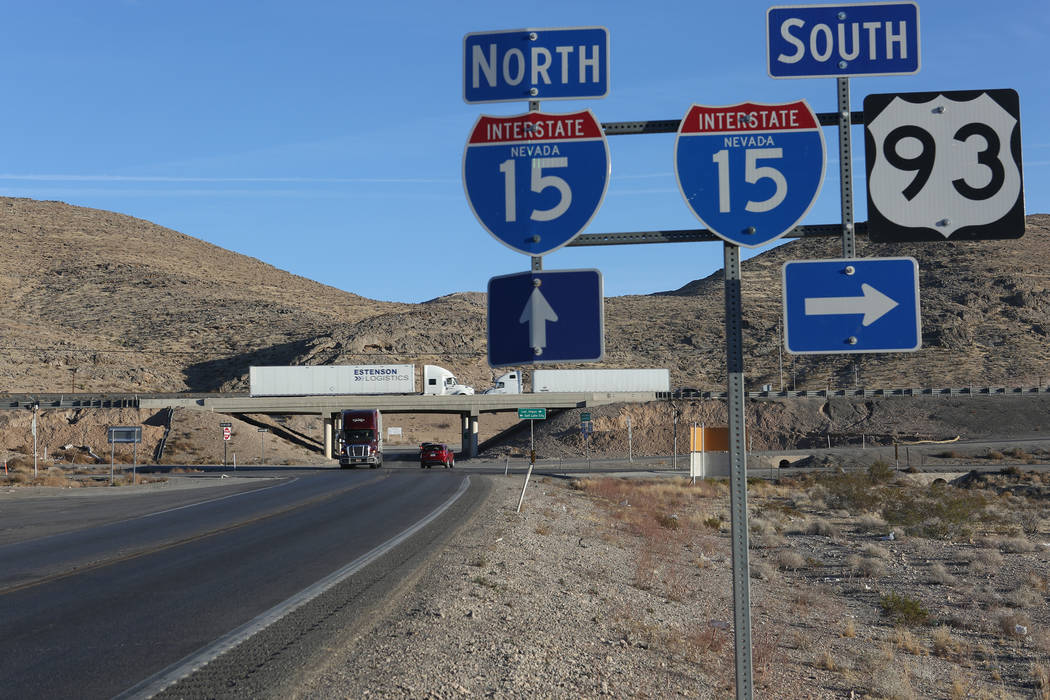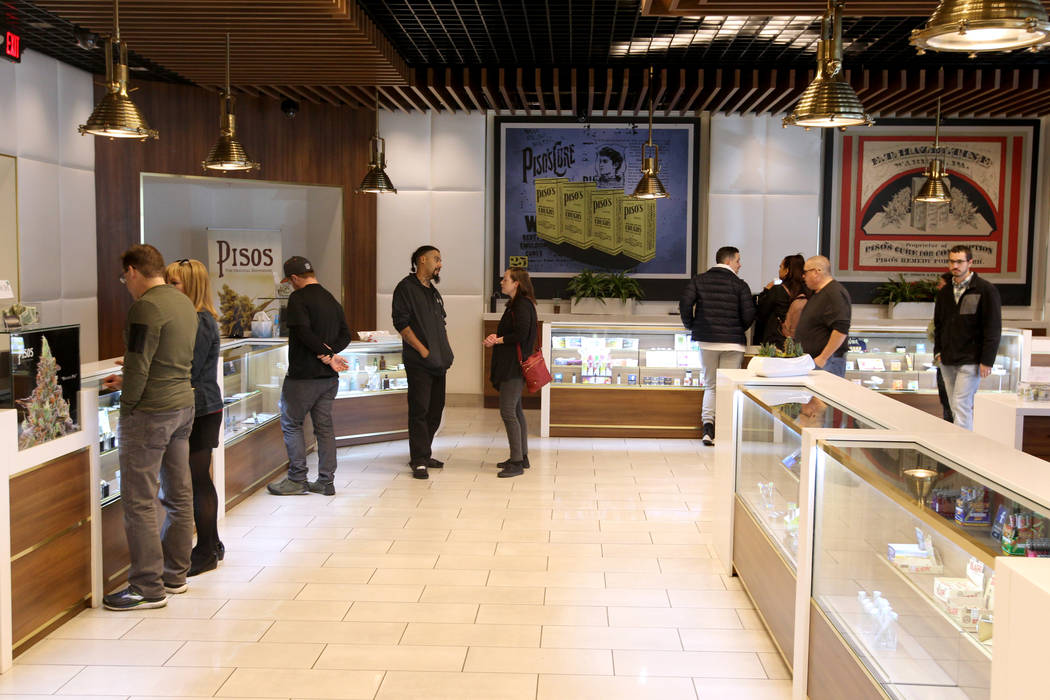Marijuana-based businesses continue development
Marijuana-based businesses in Southern Nevada are continuing to expand in the region as the gates to recreational sales opened less than a year ago.
“In terms of our specific stuff, we are still in the middle of the development,” said Pete Findley, CEO of Exhale Nevada.
Findley said there has been several million dollars already invested in Exhale, with another $8 million in investment planned for its Nevada operations.
Another facility being built in Las Vegas is by Canadian-based Marapharm Ventures Inc.
The company’s wholly owned subsidiary, Marapharm Las Vegas LLC, is constructing on a 7-acre site in Apex Industrial Park that will contain a roughly more than 300,000-square-foot project for the cultivation and production of recreational marijuana.
Corey Klassen, vice president of corporate development for Marapharm Ventures, said he hopes to have the first two 5,000-square-foot starter buildings completed at Apex by late April.
Klassen said the company sees Las Vegas as a massive market, comparing his native Canada’s population of about 36 million spread across hundreds of miles versus the more than 40 million tourists who come to the Strip.
Marapharm started developing at Apex during the first quarter of 2017, with the acquisition of Econevada LLC.
At that time, Econevada owned two provisional medical cultivation and production licenses, which garnered final approval and were transferred to Marapharm, according to a Securities and Exchange Commission filing by Marapharm.
Marapharm is in the engineering and design phase of its third building in Apex. It will measure 65,000 square feet. Klassen estimated the project’s total cost to be about $80 million.
Real estate impact
Overall, the Nevada Dispensary Association estimates in a recent survey that there has been roughly $280 million in property improvements.
Riana Durrett, executive director of the Nevada Dispensary Association, said the survey was based on property improvements since the medical marijuana program began in Nevada. The survey wasn’t broken down by property purchases, improvements and other elements of quantification.
Findley estimates there could be as much as 1 million to 2 million square feet of space under development in the Southern Nevada region for facilities being used for the medical and recreational marijuana demand in the region.
According to numbers from the Nevada Department of Taxation, there are 121 cultivation facilities, 62 dispensaries, 84 production facilities and 10 laboratories in Clark County.
Findley estimates a range of costs for different facilities: Dispensaries can run anywhere from $500,000 to $4 million. Cultivation facilities can be even higher in cost to develop, from roughly $1 million to more than $25 million, he said.
Development has not reached its end, but some industry experts don’t see growth staying at the same pace it has been.
“We will see development likely tailing off here for a while from the recent torrid growth pace in the past two years,” said Charles Jack IV, senior managing director at Integra Realty Resources, an independent commercial real estate valuation, counseling and advisory company.
“My sense is the mad rush to open, convert or build the various marijuana industry facilities required to handle the recreational demand has already largely been undertaken, although there are still some facilities at the tail end of their conversion, construction and/or build-out for their respective local marijuana industry function.”
Most of the local operators were anticipating that recreational marijuana would become legal in the state according to Jack, which it did in the 2016 election cycle. The gates to recreational sales were opened by the Tax Department on July 1, 2017.
Jack said many of the operators had contingency plans to handle possible growth if that happened.
Jack is projecting a higher growth rate for development in the local area compared with other markets that have had recreational in place for some time.
“After another year or two, we would expect the local MI to mimic the growth levels in the local economy,” he said.
Jack left a caveat to his projections, as new products hit the market, such as edibles and oils, which could lead to a demand spike.
“There is also a growth spike opportunity here locally if the legislators and regulators can provide a clear legal path and associated facilities for visitors to partake in the recreational marijuana sector locally,” he said.
The industry is expected to see higher profits.
Marijuana Business Daily reports that compounded annual sales growth is expected to increase by 14 percent to 25 percent over the next five years on a nationwide basis.
“I think the growth in sales locally will probably spike above that level for the first several years after the advent of recreational marijuana being legal in Nevada,” Jack said.
Projections from Marijuana Business Daily show 2018’s national recreational and medical marijuana sales to range from $6.7 billion to $8.8 billion. In 2021, those totals are expected to reach from $11.9 billion to $17.1 billion.
Federal uncertainty
In early January, U.S. Attorney General Jeff Sessions announced that he was rescinding guidance set during the Obama years that kept a policy of not interfering with state marijuana laws. Sessions has been an opponent of marijuana operations.
Findley sees the move as a positive for the industry.
“The only reaction is at the federal level it’s forced the conversation to occur,” he said. “It will be a very positive effect on the business — nationwide.”
There is some cause for concern.
“There is definitely concern, but there is also a wait-and-see attitude,” Jack said. “Talk, memos, innuendo, political posturing are one thing. Outright action is another.”
“Until the federal government starts actively going after medical and recreational marijuana establishments licensed and regulated at the state and local level that are otherwise following the state and local laws to the letter, I do not believe there will be any dire concern,” he added.
In March, Congress gave protections to medical marijuana, extending provisions that doesn’t allow Sessions to use funding to go after states with legalized medical marijuana in a $1.3 trillion spending bill that funds the government through September.



